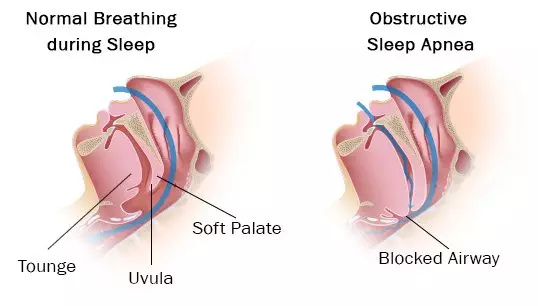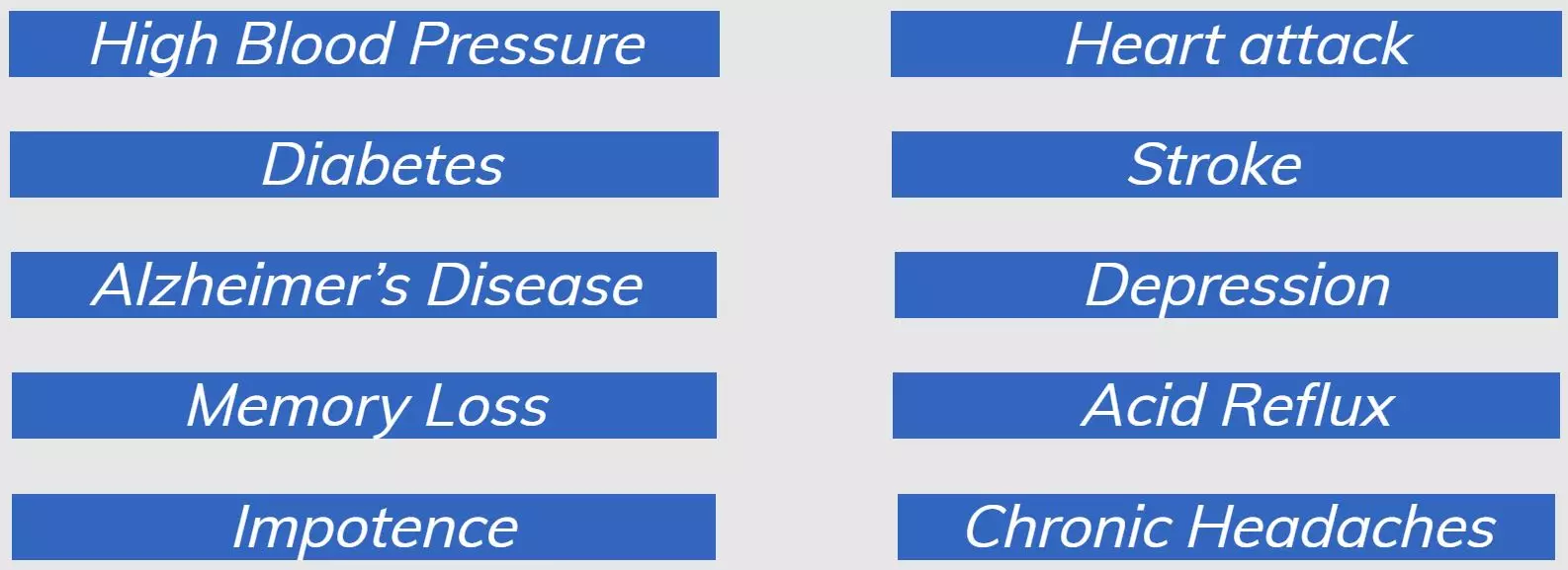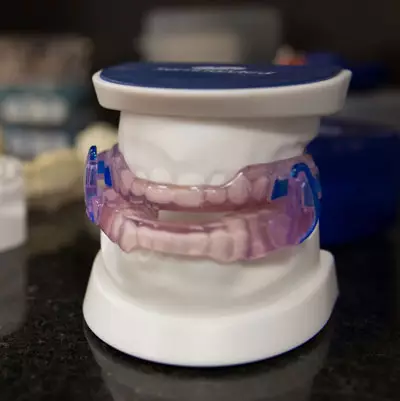DO YOU SNORE? YOU COULD HAVE SLEEP APNEA
Just about everyone snores occasionally. It is estimated that about 40% of men and 25% of women are habitual snorers. Snoring may seem like a harmless habit or just a nuisance to a bed partner but snoring can affect the quantity and quality of your sleep. Inadequate or poor quality sleep can lead to daytime sleepiness, fatigue, irritability, depression and an increased risk of serious health problems, including high blood pressure, diabetes and cardiovascular disease.
If you snore and have any of the symptoms above you may have a condition called Obstructive Sleep Apnea (OSA). Sleep Apnea is as common as adult diabetes but most often goes undiagnosed.
The word "apnea" literally means "without breath." People with untreated sleep apnea stop breathing repeatedly during their sleep, sometimes hundreds of times during the night and often for a minute or longer.
With Obstructive Sleep Apnea, the muscles and soft tissues of the upper airway relax during sleep and cause collapse of the airway. As the airway narrows, airflow becomes restricted, depriving the body of oxygen. This places stress on the brain and heart. Further, as the body compensates by waking itself, it disrupts the natural sleep pattern and doesn't allow the body to get the deep, restorative sleep that it needs to function normally.
How is it Diagnosed?If you suspect that you may have sleep apnea, you should see a doctor right away. Your primary care doctor or even your dentist at Matthews Family Dentistry can refer you to a sleep specialist for a complete evaluation including a sleep test. A sleep test is the only way to find out for sure if you have a sleep disorder. You can also fill out the Self Assessment Form and bring it in to our office so that we can assess your risks.

Click to take a simple
Sleep Apnea Self Assessment
LONG-TERM EFFECTS OF SLEEP APNEA
One of the major complaints by those who suffer from sleep disordered breathing is Excessive Daytime Sleepiness (EDS). This occurs because your sleeping patterns get disrupted during the night when your body is not getting enough oxygen. People with sleep apnea may awaken five to ten times per hour without being aware of it.
Aside from tiredness, there are many other more serious health risks associated with sleep apnea. When your body is not getting enough oxygen throughout the night, you can have periods of time when your oxygen saturation levels drop to dangerous levels. When you are awake and breathing well, your oxygen saturation levels are typically 95%-99%. People who snore heavily or have sleep apnea can have oxygen saturation levels that drop as low as 50% many times throughout the night.
The long-term effects of depriving your body of oxygen night after night can cause a number of health problems, including:

If you think you may be at risk for sleep apnea, it is important that you have your condition evaluated and treated so that you can reduce your risks of these serious health problems. Click here to fill out our screening form or click to set up a no-cost sleep consultation.
ORAL APPLIANCE THERAPY FOR SLEEP APNEA
Standard treatment for obstructive sleep apnea has been the use of a breathing machine called a CPAP (continuous positive air pressure) machine. However, the American Academy of Sleep Medicine now recommends oral appliances as a first line treatment option for patients with mild to moderate obstructive sleep apnea (OSA) who either prefer it to CPAP or are unable to successfully use CPAP.
Our doctors have undergone extensive training in the area of sleep disordered breathing and proper treatment with oral appliances. Oral Appliance Therapy for OSA works by repositioning your lower jaw while you sleep so that your airway remains open and apneas are prevented.
The result is a drastic decrease or elimination of snoring and more restful, restorative sleep. Subsequently, your risks for other related health problems are improved.
An oral appliance can also be used to treat snoring even if you do not have Obstructive Sleep Apnea.
Call our office to set up an appointment for a free consultation if you snore or think you may have sleep apnea.

Schedule your no-cost consultation
to put an end to your snoring and improve your sleep health
Not only our bed accomplice , even we ourselves don’t like snoring. But wait if you snore, then you need to consult your doctor immediately. An effective snoring and sleep apnea treatment is important for healthy sleep. This is because snoring is often associated with sleep apnea. In medical terms, we call it Obstructive Sleep Apnea Disorder. This condition arises when the muscles and delicate tissues of the mouth and throat cause the airway to get blocked.
Sleep apnea affects the quality of your sleep . It does not allow the body to take maximum benefits of resting. Hence, you may feel sleepy and experience fatigue during the day time. On long term basis, sleep apnea can lead to health issues like severe headaches, high blood pressure, loss of memory, low concentration levels, etc
With Oral appliance therapy, this sleeping disorder can be treated. It involves repositioning of lower jaw, so that obstruction to airway can be considerably reduced. Thus, while sleeping your body gets good amount of oxygen. And when you take proper rest then you will wake up with full energy.
If you think you are suffering from sleep apnea. Then don’t wait, book an appointment with Matthews Family Dentistry immediately. We provide no-cost consultation and will guide you through snoring and sleep apnea treatment process . Our dental team will refer your case to a sleep specialist for proper assessment of your condition. You will be required to undergo sleep test for more conclusive diagnosis.
